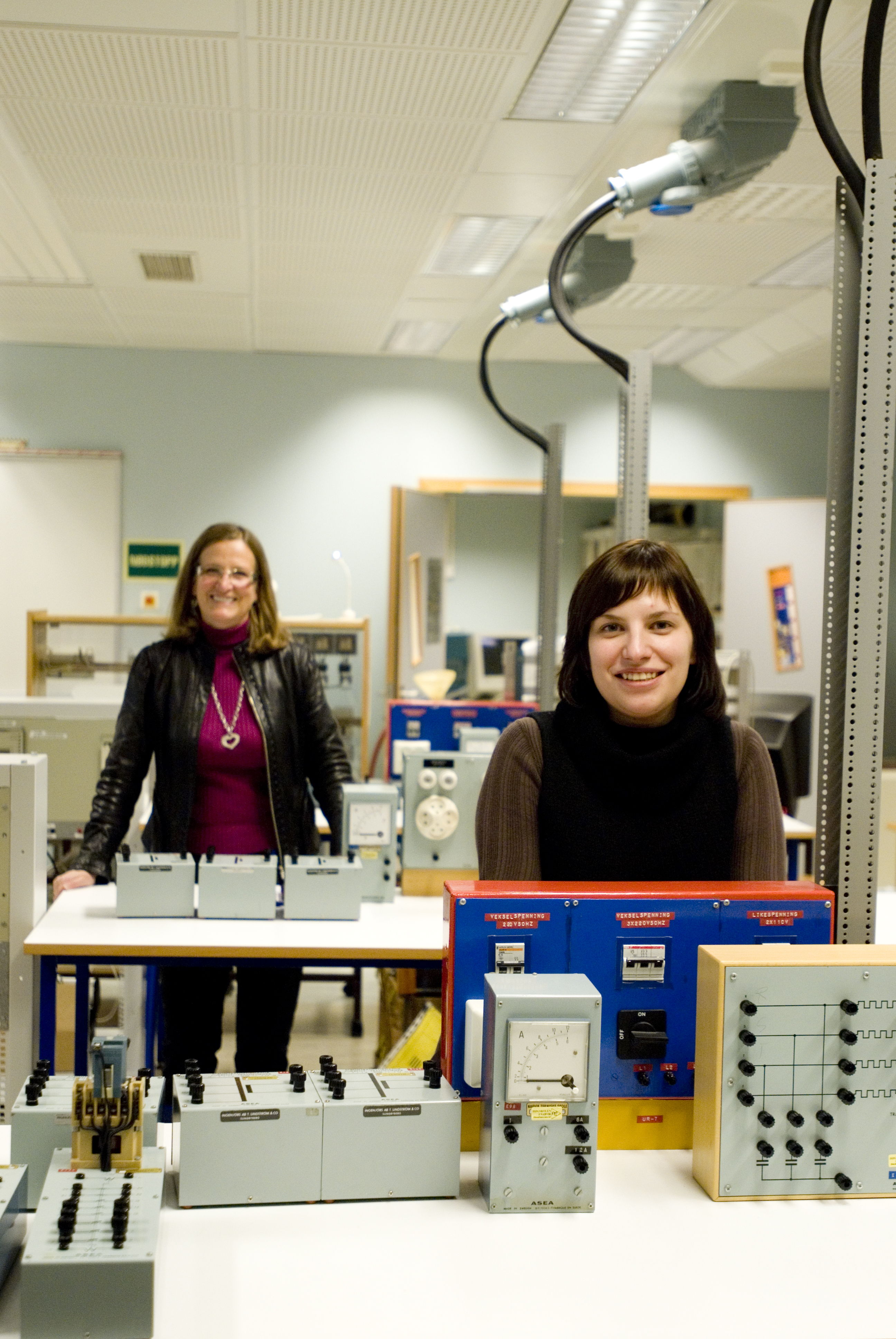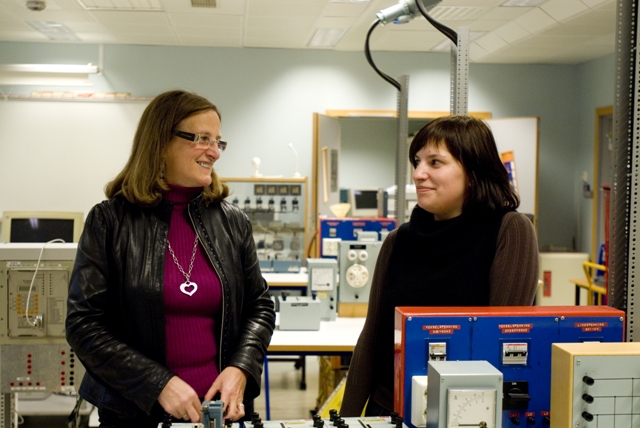Ready for challenges in Northern Norway
"We have to be prepared to take on the great challenges and possibilities that exist for technologists in the High North," says Kirsti Hienn. She is the project manager of the Moment network for female technologists.

"We observed that the number of female students diminished. Some years we hardly had any," says project manager Kirsti Hienn, one of the initiators of the Moment network at Narvik University College.
She says that the network was founded to visualize and facilitate the studies for female students of technology. It was well received, and ‘Moment Student’ came to include female technologists in the High North.
They will function as mentors and be visible role models for each other.
"We have to be prepared to take on the great challenges and possibilities that exist for technologists in the High North," Hienn says.
Kirsti Hienn, Maria Maksheeva and Wei Deng Solvang are three professional, well prepared ladies with ambitions on their own, and other’s behalf.
The panoramic windows in the canteen at Narvik University College, where we meet them, would have offered us an impressive view, but a sunny summer has had to yield to fog and autumn rain.
The university college, where the network is housed, has no female professors in the technology-related disciplines, but Solvang and three of the others are currently qualifying to be professors.
"We have a long way to go, but we envisage great possibilities," Hienn says.
Learn to build networks
Energy is a key word for the development of the High North in the years to come, and technological knowledge is key. However, as per today there are few women with technological training in Northern Norway and the recruitment of women to technology-related studies has been diminishing.
There are few women in leading positions in politics, management and private industry, and an increasing number of top company officers in the private industry sector are male long-distance commuters. The High North has a negative birth rate, and the level of education is low, compared to the rest of the country.
The challenges the network aims to take on are not small, and they approach them from various angles. First of all, they want to recruit students and facilitate the studies for those who already are studying. In addition, they will function as mentors to channel female technologists into top leadership positions.
"Women are traditionally not good at building career networks, whereas they are better at building social networks. Women must to learn to build networks for the working life," says Hienn.
This is where Moment will contribute. They hope to attract experienced, competent women who can help young technologists on their way. They will also function as a resource for companies and organizations wishing to employ women, or recruit women for chairman and leadership positions.
But what will it mean to the High North that female technologists are trained in Northern Norway and have the area as their workplace?
"Women often settle where they work, while men often commute. One of the goals is to make sure that the development in the High North benefits the local community, and it becomes important to invest in female technologists who settle and make their contributions to the local community," says Hienn.

Recruiting
The Moment network has been active for two years already, and its forerunner, Moment Student, has had its fifth anniversary. Today, the university college has 145 female students in technology-related disciplines, in bachelor or master programs. The students express what kind of courses and seminars they need:
"Among the most important factors is the need for a forum where the women can convene, since there are so few of them in each class," Maksheeva says, who is currently working on her master’s degree.
How much time the students can use for networking in a busy period with intense studies varies a lot, but one thing they do make time for, is travelling to further education colleges to recruit girls.
The Narvik University College has specialized in getting students from Russia and China, and the majority of the Russian students are girls. Maksheeva, coordinator of Moment Student, came from Russia on her own initiative. She is surprised at the insignificant number of girls choosing scientific subjects.
"In Russia, a greater number of girls choose scientific subjects. It may be linked to the fact that we teach scientific subjects in the further education colleges, and these subjects are compulsory. When I visit Norwegian further education colleges to talk about technological subjects, I am met by big, round eyes," she says.
Maria explains that the students are surprised that she, a woman, talks to them about math and natural sciences, because already in the secondary schools, these subjects have become subjects for the boys.
"The focus must be directed onto these subjects in the secondary schools," she says.
Old sins
Moment has held several seminars in order to identify the challenges for female technology students, and to discover measures to be taken to recruit more female students. They hold that a continuous focus on these problems is necessary.
"The problems we have today of recruiting women started more than 20 years ago. Now, we have to think 20 years ahead in time," Hienn says.
Recently they had 400 pupils in secondary education visiting, to listen to a lecturer from the environmentalist organization ‘Nature and Youth’ ('Natur og Ungdom').
"It’s all about making girls consider the technological disciplines as a way to get an education," says Hienn.
"Have your endeavours yielded any results?"
"When we started out, the number of students was so low that it only could increase. Now we are working to recruit more students, and at the same time we’re trying to make the ones we already have to go on to postgraduate studies or research."
Hienn thinks girls have become more traditional regarding choice of careers.
"It is as if the pendulum has gone in the other direction. Society invests heavily in scientific subjects, but it looks as if the girls opt out," she says.
The technologists in Moment are more curious than critical to oil drilling in the seas outside Lofoten. While the opinion among people in Lofoten recently turned against it, from having been in favour of it, the technologists of Moment are excited about the technological challenges with which searching and the possible extraction of oil will present them.
We look upon it as exciting work-places for female technologists. A lot of the energy extraction is controversial. But we want to develop this part of the country. Too many graduates and post-graduates move to the south of Norway when their studies are over, says Hienn.
Translated by Ragnhild Ruud
Source: Moment’s fact sheet.